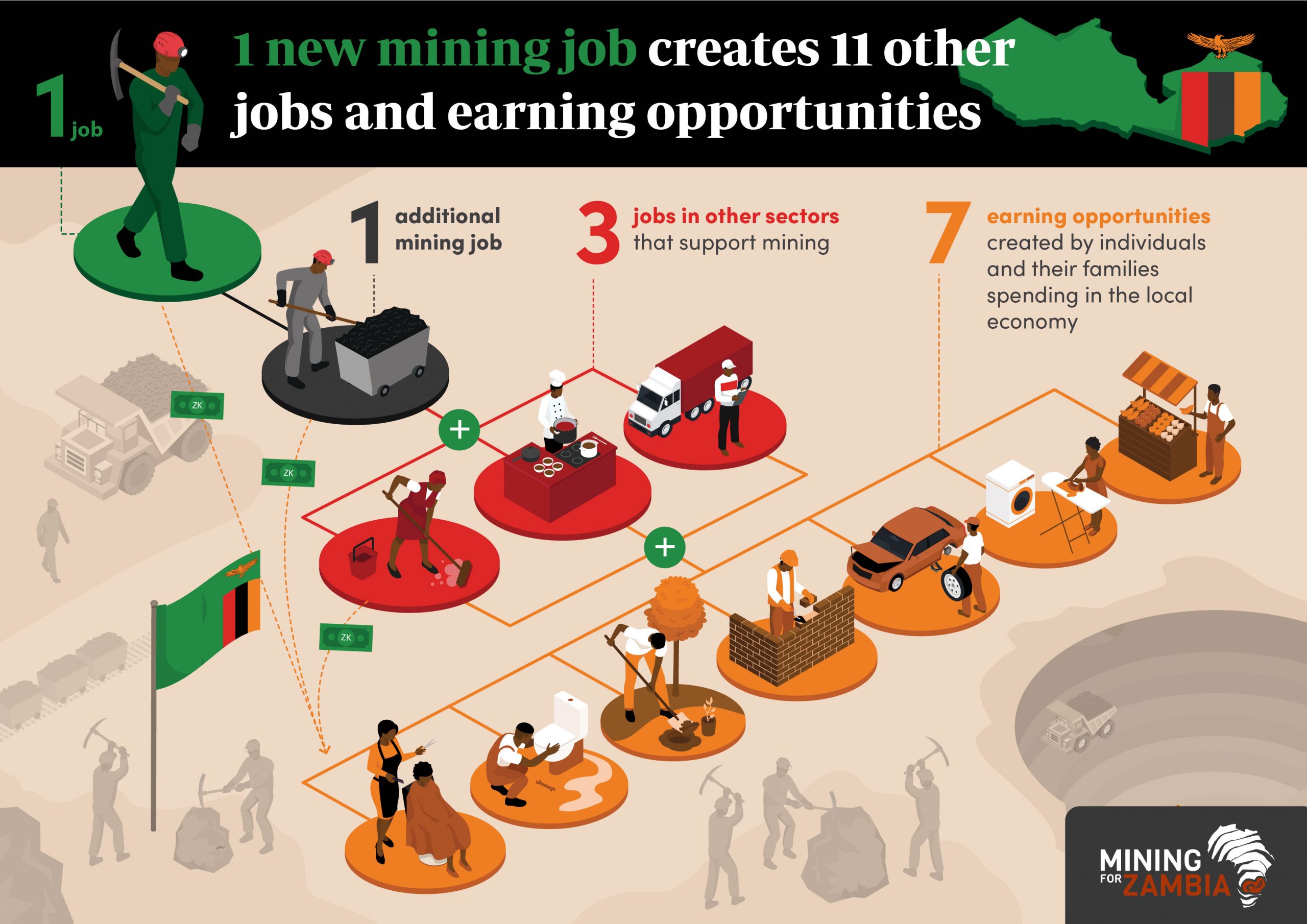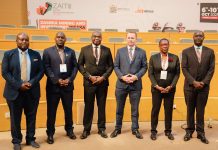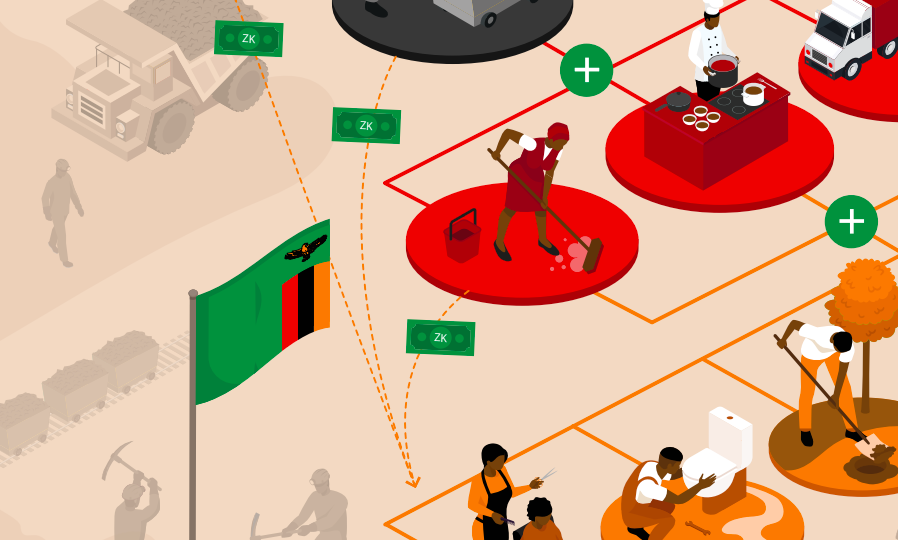Picture a mine in Zambia, and you might imagine conveyor belts high in the sky above ore bodies below, or truckloads of ore chugging back and forth, or people in hard hats making their way into pits where mineral deposits lie somewhere beneath the surface. From a distance, mining operations can resemble a perfectly choreographed performance, or a well-oiled machine in which each piece moves smoothly and independently, knowing exactly when its role comes into play at any given time.
But behind the scenes, other groups of people play completely different – perhaps seemingly unrelated – roles, each of which is also integral to these mines’ smooth running. Somebody is sewing the workwear that protects these miners; somebody else is changing the tyres of the truck that needs to carry 200 passenger cars’ worth of ore down a road that yet another somebody levelled in the ground. The lunches that people eat on site are cooked by another person; perhaps he or she has always dreamed of having a small catering business. Somebody had to grow the vegetables and maize that were used to cook these lunches, and they had to be transported from Lusaka or Kitwe or Kalumbila by a different person, in a vehicle that may be one in a growing fleet. Barbers and butchers and banks gravitate to set up shop and serve new markets of new employees, when jobs are created in a mine. Every one of these people is a vital cog in the enormous wheel that is mining in Zambia.
Wherever you are in the vast and interconnected network that is mining, take a moment to think about this chain reaction, in which one job multiplies and multiplies again further down the line.
In Zambia, one new mining job creates 11 other jobs and earning opportunities.
Here, you can see this incredible phenomenon, illustrated.

To read more about exactly how the economic multiplier effect comes into play in Zambia’s critical mining sector, and how these figures were calculated, take a look at the key findings from this May 2022 report, Evaluation of Economic Impact of Planned First Quantum Minerals Investments in Zambia by leading economist Professor Oliver Saasa and economic statistician Mr Shebo Nalishebo, here.
See also: Investment today, multiplied tomorrow
























This is good,but also empowering communities,
start teaching lesson on hot culture and empower small scale farmer by providing them with necessary equipment and seedlings, fertilizer and other item on loan bases to those who have the potential to produce.
Thanks for reading and for sharing your thoughts, William. You may find these two articles about some of the programmes (including farmer input support) that are currently running in North-Western Province of interest.
https://miningforzambia.com/businesspeople-north-westerns-future/
https://miningforzambia.com/celebrating-success-in-farming/
Please improve the standard of living of the people in communities where your mine is. Social responsibility and looking after the welfare of the people by empowering them.